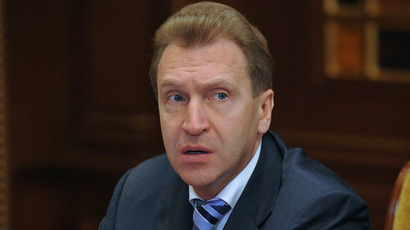Domestic Russian tax haven idea on back burner

Plans to create Russia's own internal offshore tax zone to counter European tax havens as well as boost capital investment in Russia were first proposed by Prime and Deputy Ministers Dimitry Medvedev Igor Shuvalov, but will likely now remain a pipe dream.
"The idea is still very undeveloped, and the Finance Ministry does not understand how it can be done," an anonymous ministry official told Vedomosti.
Support by the Ministry of Finance has been cool over creating an offshore destination in Russia’s Far East, an alternative to more risky tax havens in Europe that would draw investment from abroad as well as keep Russian money in Russia.
The new zone would in theory help return investment to Russia, as well as curb accusations of corruption among government officials for owning foreign securities, equities, making deposits, or operating foreign bank accounts.
The State Duma has been mulling over the idea for the last 2 months, and more hastily since the government set a July 1st deadline for government officials to ‘de-offshore’ their wealth, or else be stripped of their official posts.
If an offshore zone is to be created, it will be executed as a Special Vehicles Purpose-based bank, and if would operate via the International Investment Bank (IIB), a bank established in 1970 for socialist countries.
IIB member states includes Russia, Bulgaria, Vietnam, Cuba, Mongolia, Romania, Slovakia and the Czech Republic. The bank is currently based in Moscow.
Negotiations for the project are ongoing, but the IIB would be an the most obvious vehicle because presently its services are underutilized.
Nikolay Kosov, Board Chairman of the IIB, first pitched the idea to Shuvalov, who instructed the Finance Ministry to consider the option.
Existing tax havens, such as Cyprus or Monaco, would be used as a model to set the rates in the Far East Russian offshore. For example, if a Cypriot company made a loan at 10 percent, under this structure the Russian offshore would offer a slightly higher rate of 10.3 percent, Denis Shchekin, managing partner and Shchekin and Partners told Vedomosti.
It is estimated Russians, before the Cyprus crisis, held roughly 15 billion euros in funds on the tiny Mediterranean island.
The IIB is exempt from income tax, a benefit the bank could pass onto its high paying customers. As long as the money stays in the bank, the depositor won’t have to pay tax on the interest. This would appeal to companies looking to keep money in a ‘safer’ more legal offshore area.
It is unlikely the Russian offshore project would be able to provide the same level of secrecy as other jurisdictions such as the Cayman Islands, Switzerland, and Austria, all of whom have long established banking secrecy laws.














